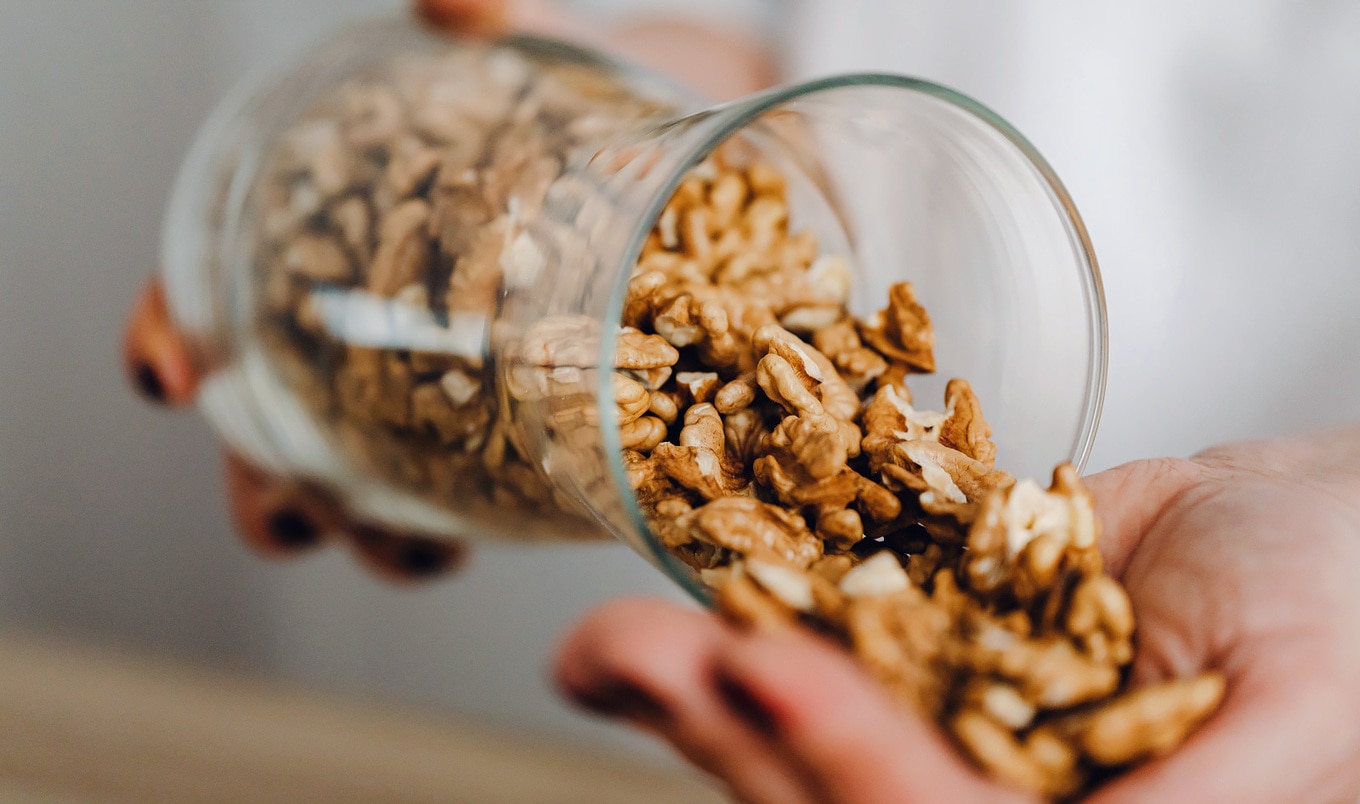Consuming plant-based foods could alleviate post-traumatic stress disorder (PTSD) symptoms, according to a new study conducted by researchers from Brigham and Women’s Hospital and Harvard T.H. Chan School of Public Health.
PTSD, a debilitating mental health disorder characterized by intense fear and anxiety, is known to develop in individuals who have experienced traumatic events such as severe injury, the threat of death, or violence. It not only affects the individual but also has far-reaching impacts on families, healthcare systems, and society at large.
 Adobe
Adobe
People with PTSD face an elevated risk of chronic diseases, including coronary heart disease, stroke, diabetes, autoimmune disorders, and even premature death.
Mental health and gut health
The research delves into the gut microbiome’s role in mental health, shedding light on how dietary choices may influence emotional well-being.
Specifically, the study explored the interplay between mental and physical health by investigating the gut-brain axis, offering a promising avenue to explore ways to mitigate the negative health consequences of PTSD.
“Through our study, we examined how factors, like diet, are associated with PTSD symptoms,” co-corresponding author Yang-Yu Liu, PhD, said in a statement. “While further research is needed, we are closer to being able to provide dietary recommendations for PTSD prevention or amelioration.”
 Nensuria
Nensuria
To gather data, the research team worked with 191 participants from sub-studies of the Nurses’ Health Study-II, including the Mind-Body Study and the PTSD Substudy. The participants were divided into three groups: those with probable PTSD, those exposed to trauma but without PTSD, and those with no trauma exposure. Stool samples were collected twice, at the beginning of the study and six months later, to analyze microbial DNA and ensure the stability of the participants’ gut microbiomes over time.
In the course of their research, the team examined various factors, including age, body mass index (BMI), and dietary habits, and their associations with overall microbiome structure. Notably, they found that factors such as BMI, depression, and the use of antidepressants were linked to changes in the microbiome structure.
Plant-based foods alleviate PTSD symptoms
In addition to these findings, the researchers explored the connection between dietary habits and PTSD symptoms. Their investigation revealed that those who adhered to a Mediterranean diet experienced fewer PTSD symptoms.
Specifically, they discovered a positive association between the consumption of red and processed meats and PTSD symptoms, while the consumption of plant-based foods was inversely correlated with PTSD symptoms.
 Getty
Getty
To further elucidate the connection between PTSD symptoms and the gut microbiome, the researchers employed a technique to help identify species that may play a protective role in PTSD. Eubacterium eligens emerged as a top candidate for a protective species against PTSD. Importantly, the inverse relationship between E. eligens abundance and PTSD symptoms was consistent across all four-time points.
The researchers also established that E. eligens was positively associated with components of the Mediterranean diet, such as vegetables, fruits, and fish, while being negatively associated with red and processed meat, which is limited or avoided in the Mediterranean diet.
While the study has uncovered significant insights, the researchers acknowledge certain limitations, such as the use of a short screening scale for PTSD rather than a formal clinical diagnosis. However, the findings pave the way for future research into the relationship between diet, the gut microbiome, and mental health disorders.
Liu expressed enthusiasm for the results, suggesting that the Mediterranean diet could offer relief to individuals experiencing PTSD symptoms.
“It’s exciting that our results imply that the Mediterranean diet may provide potential relief to individuals experiencing PTSD symptoms,” Liu said.
“We are eager to learn more about the relationship between PTSD, diet, and the gut microbiome. In a future study, we will attempt to validate the efficacy of probiotics as a method to prevent PTSD,” Liu added.
The link between diet and mental health
This groundbreaking research not only sheds light on the potential dietary interventions to alleviate PTSD symptoms but also underscores the significance of the gut microbiome in mental health.
Previous studies have also suggested that there are benefits to plant-based foods when it comes to improving mental health. A study published in the medical journal Clinical Nutrition earlier this year found that a mere 30 grams of nuts—about equivalent to a handful—consumed daily could potentially lead to a 17 percent reduction in the risk of depression.
 Pexels
Pexels
Another study published last year in scientific journal Nutrients found that eating two ounces of walnuts a day for 16 weeks resulted in improved self-reported mental health indicators for undergraduate university students.
Experts have previously highlighted the role of nuts as sources of bioavailable phytochemicals known for their anti-inflammatory and antioxidant attributes. The anti-inflammatory effects, encompassing the suppression of proinflammatory cytokine expression, coupled with the antioxidant benefits, could collectively contribute to the observed reduction in depression risk.
“While more supporting research is needed, evidence is becoming clear that consuming walnuts as a healthy eating pattern may have positive effects on cognition and mental health, potentially owing to their abundance in omega-3 ALA content,” Larisa Bobrovskaya, PhD, Associate Professor of Clinical and Health Sciences at the University of South Australia and lead researcher on the study, said in a statement at the time.
For the latest vegan news, read:
JUMP TO ... Latest News | Recipes | Guides | Health | Subscribe









